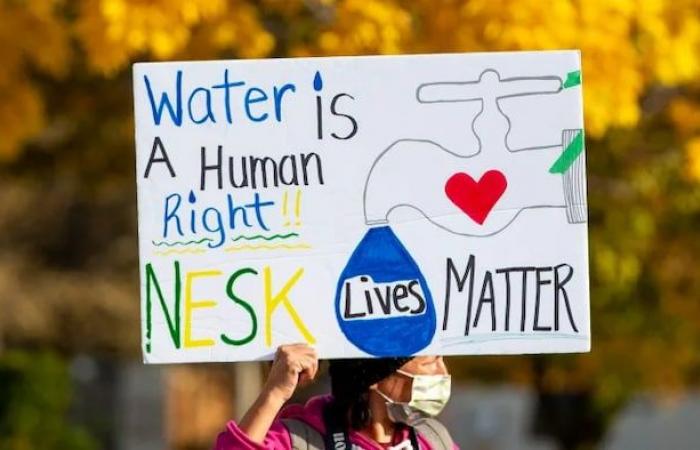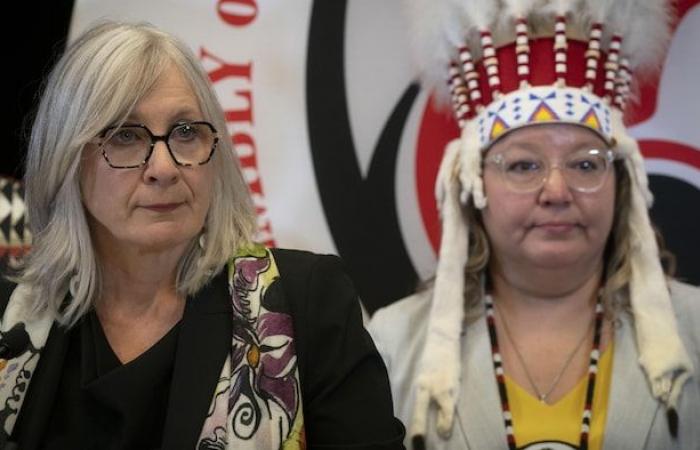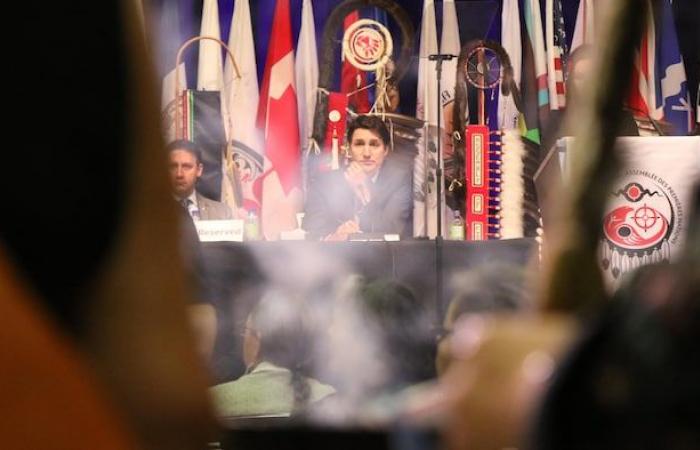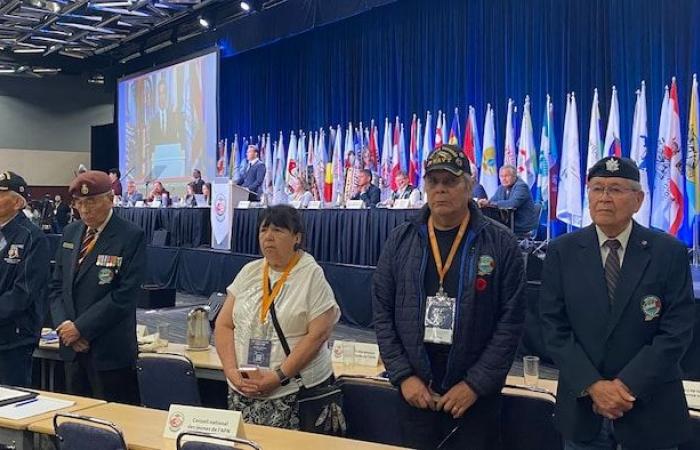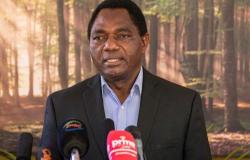If there have been great victories in 2024, the national chief of the Assembly of First Nations (AFN), Cindy Woodhouse Nepinak, intends to continue to push the limits for Indigenous rights. It is clear to her that regardless of the composition of the next government, it will have to “work in good harmony with the First Nations”.
After a year in office as national head ofAPNCindy Woodhouse Nepinak has no illusions and doesn't take for granted the support of the leaders of the more than 600 communities she represents. Their opinions differ on several subjects, but she is convinced that they all want the same thing: a better life for all their children.
The last few months have been eventful, particularly because of the youth protection issue, in which a $47.8 billion agreement, negotiated between the federal government and the AFN, was finally rejected in October. Not an easy job
undertaken with courage, according to her. She believes that diverse opinions energize the APN
.
The 41-year-old leader intends to continue her struggles: unity atAPN to stand together as a federal election approaches, investigation into systemic racism in police services, youth protection and access to drinking water are all on the list of priorities for 2025.
Indeed, she knows to what extent Aboriginal people do not always have access to the most basic human rights
who grew up in the community of Pinaymootang, 250 kilometers north of Winnipeg, Manitoba, without running water.
A look back at her year as national leader and her priorities for 2025.
Indigenous spaces : What do you absolutely want to achieve during your mandate?
Cindy Woodhouse Nepinak : Over the past year, we have recorded historic legal victories, including over First Nations jurisdiction, national natural resource rights and police funding. These victories were won in court.
Open in full screen mode
The Supreme Court recognized that Quebec had not adequately funded the police service of the Ilnu community of Mashteuiatsh.
Photo : -
But we still have a lot of priorities. We will focus on children and their protection, Jordan's Principle and First Nations policing. I therefore look forward to future work in this area.
We also need to ensure that First Nations voices are at the forefront and remind Canada that if it invests in First Nations and addresses the infrastructure and housing gaps in this country […]Canada could become a world economic leader.
As busy as 2024 has been, we're just getting started. In 2025, we will continue to work with the executive council and heads of theAPNfrom coast to coast, to ensure that the First Nations Drinking Water Act is adopted. We must put pressure on Parliament, even if it is chaotic today.
Open in full screen mode
Neskantaga has been without drinking water for 30 years.
Photo : (Carlos Osorio/The Canadian Press)
Legislation on First Nations policing services should be introduced so that they can benefit from reliable long-term funding. These are things we need to stay focused on in the House of Commons, no matter what happens there. [Les députés] must address these issues. It is therefore very important to increase the participation of First Nations in federal elections, where their voices count.
We will continue to push the boundaries of the law to ensure that First Nations Aboriginal and treaty rights are fully implemented and recognized in this country.
We are seeing a change in this country. Political leaders are part of it. First Nations are all part of it.
EA : In July, you proposed to the leaders of the Assembly the agreement with the federal government of $47.8 billion to reform long-term indigenous child protection. Were you confident it would be accepted?
DOG : When I pushed for this money to be put on the table, I wanted it to go to First Nations. I love my people so much! It is not a question of harming anyone but of trying to reverse this upward trend in the number of children [placés dans le système]. [S’il le faut]I will do it again.
At the same time, this is a very difficult conversation, and one thing was clear: First Nations from coast to coast who were present at this assembly, online or in person, want a different system for child protection. And I'm glad we started this conversation. People are starting to ask themselves what is the right path forward for their community: that's a good thing!
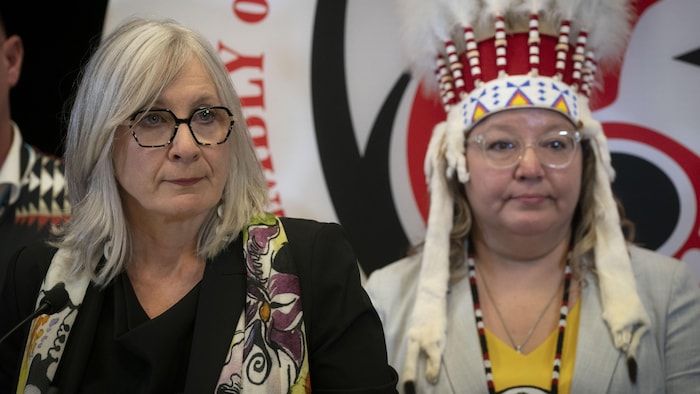
Open in full screen mode
The announcement of the $47.8 billion deal in July was emotional, including for Indigenous Services Minister Patty Hajdu (left).
Photo : - / Ivanoh Demers
I encourage all First Nations to adopt their own laws, their own legislative framework, because our children expect and deserve better in this country. I know there have been a lot of differing opinions, but all the suggestions have been good.
So we still have a long way to go on this issue. But we can't stop. We must continue to fight against a broken system.
EA : Some have denounced the lack of transparency of the APN by asserting that the Assembly works for the interests of the government and not for those of the members. This is not the first time that leaders have denounced the lack of transparency ofAPN. What do you answer them?
DOG : When we negotiate, it is not public. […] At each meeting, we ensured that we informed our regional leaders, who themselves passed the information on to their leaders in the communities. […] I know we may have to find another way to do this. But at the same time, when you negotiate big deals like this, they're not done in the public eye, because sometimes you push, you push very hard.
I can say I pushed really hard and I'm grateful we got the 47.8 billion on the table. I hope the government does not wipe this amount out with the elections or that together we can get more money. But we are still waiting for news from Ottawa.
EA : For the moment, what is your assessment of the Trudeau government?
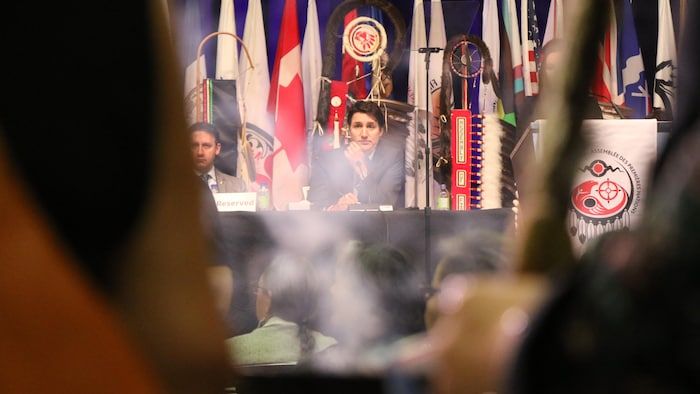
Open in full screen mode
Mothers of Indigenous people killed by police challenged Justin Trudeau during the extraordinary assembly of chiefs of the Assembly of First Nations. They burned sage during their intervention.
Photo: - / Marie-Laure Josselin
DOG : Prime Minister Justin Trudeau, through his leadership, has invested massively in First Nations over the years. Certainly we have some good studies that show that life is getting better. But we still have a long way to go.
If we work together and close the infrastructure gap by 2030 – as we have committed to – Canada could improve its economic situation. However, it must invest in First Nations. So, I congratulate Prime Minister Trudeau for his fiscal investments in favor of First Nations. I know it's never enough, but I know he tried.
On the tax front, the differences are enormous compared to various previous governments. I remember a federal government in the past boasting of having given $500,000 to a friendship center in eastern Canada. I found it really insulting at the time.
I then said to myself that we don't have drinking water. The houses are collapsing. Children do not have access to the same things as other Canadian children, for example good roads, good schools, access to cell phone and Internet, things that children in the south [du Canada] taken for granted. We do not want to return to such a relationship.
EA : You have already said several times that you know Pierre Poilievre and his family. However, the Conservatives are not very popular among Aboriginal people. How will you deal with a possible Conservative government?
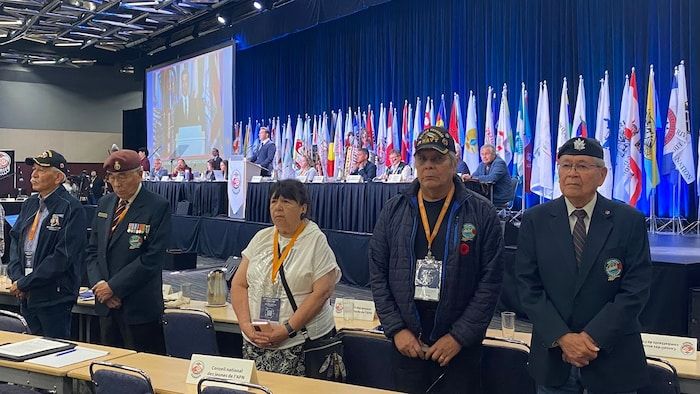
Open in full screen mode
Indigenous veterans turn their backs on Pierre Poilievre during his speech in protest.
Photo: - / Marie-Laure Josselin
DOG : Canada cannot excel without First Nations. I think that all political parties and elected officials must realize that they can no longer think that First Nations will stay on the sidelines and accept second or third class status. We have the means to act. We are moving in the right direction. We have been good allies. At the same time, [quand nos traités ne sont pas respectés ou que nos droits sont bafoués]every time we file a lawsuit, we win. I think the smartest government will work in harmony with the First Nations.
EA : Finally, last year, during your election, you promised a plan to the indigenous leaders of Quebec so that they too feel that theAPN represents them. What have you accomplished from this plan?
French has always been a thorny issue at the Assembly of First Nations. For example, we received the Bloc Québécois, who came to address the APN [lors de l’assemblée des chefs, début décembre]. I know the English speakers were kind of irritated because they couldn't understand [le chef bloquiste Yves-François Blanchet]. I thought: Imagine how people from Quebec feel all the time when they can't understand sometimes because of English and French.
So we have a long way to go in the AFN and we need to find a way to move forward in this direction to make things better, clearer and faster for the translation service. It's always difficult to find and French speakers in Quebec, especially those from the First Nations, are very difficult to find and reach. We are also still looking for an indigenous French speaker to work in my office to assist us with Quebec.
This year, I came to Quebec three times to work with the chefs. The regional chef for Quebec, Ghislain Picard, is really efficient. He is a good defender for Quebec and to ensure that the AFN keeps its promises.
This interview has been edited for clarity and brevity.
With the collaboration of Marie-Laure Josselin


